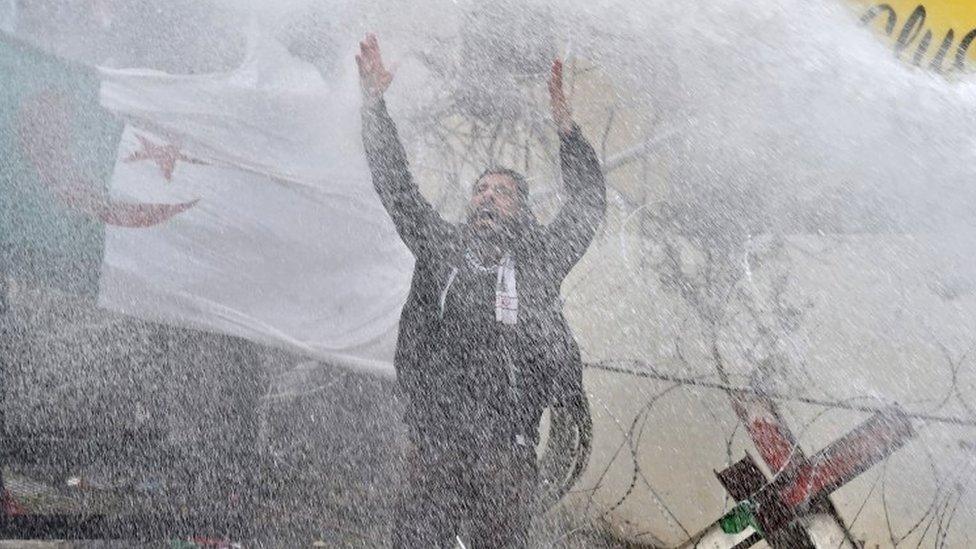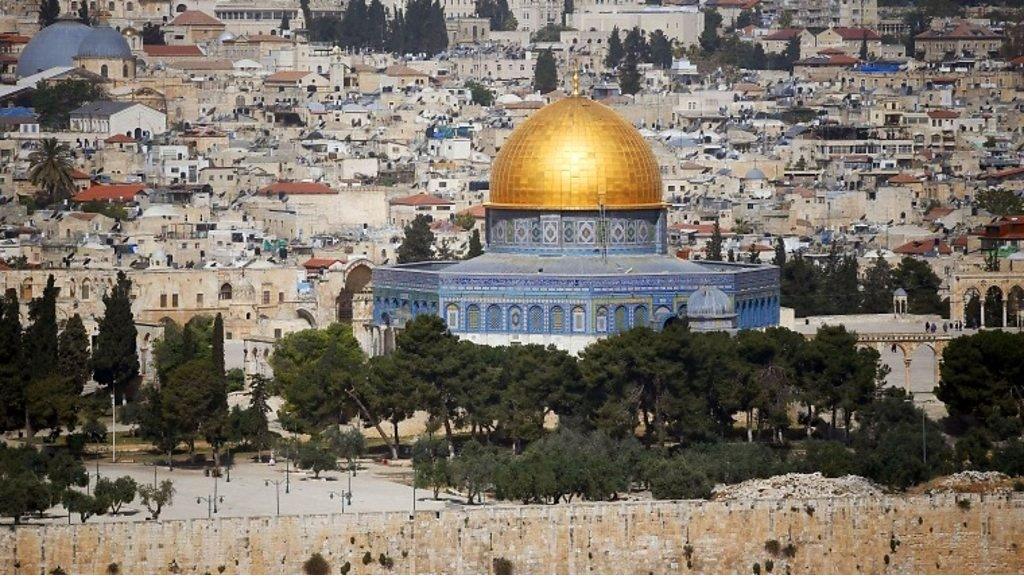Jerusalem: Netanyahu expects EU to follow US recognition
- Published
The pair greeted each other warmly but had different things to say on Jerusalem
Israeli PM Benjamin Netanyahu says he expects European countries to follow the US in recognising Jerusalem as his country's capital.
He is in Brussels for talks - the first time an Israeli prime minister has visited the city in more than 20 years.
But the EU's foreign policy chief, Federica Mogherini says the bloc's stance on the matter is unchanged.
Donald Trump's move has left the US isolated on a highly sensitive issue between Israel and the Palestinians.
Arriving in Brussels, Mr Netanyahu again welcomed the announcement, saying Jerusalem had been the capital of the Jewish people for 3,000 years and Mr Trump had put "facts squarely on the table".
"I believe that all, or most, European countries will move their embassies to Jerusalem, recognise Jerusalem as Israel's capital and engage robustly with us for security, prosperity and peace," he added.
As well as recognising Jerusalem, President Trump also said he was directing the US state department to begin preparations to move the US embassy from Tel Aviv to Jerusalem.
But Ms Mogherini said the EU would continue to recognise the "international consensus" on Jerusalem.
"We believe that the only realistic solution to the conflict between Israel and Palestine is based on two states with Jerusalem as the capital of both."
She also condemned "all attacks on Jews everywhere in the world".
Before heading to Brussels, Mr Netanyahu met French President Emmanuel Macron in Paris, who urged him to freeze settlement building and to re-engage with Palestinians.
Why Trump's move was controversial
Israel regards Jerusalem as its "eternal and undivided" capital, while the Palestinians claim East Jerusalem - occupied by Israel in the 1967 Middle East war - as the capital of a future Palestinian state.
Israeli sovereignty over Jerusalem has never been recognised internationally, and all countries maintain their embassies in Tel Aviv.
Why the ancient city of Jerusalem is so important
According to the 1993 Israel-Palestinian peace accords, the final status of Jerusalem is meant to be discussed in the latter stages of peace talks.
Since 1967, Israel has built a dozen settlements, home to about 200,000 Jews, in East Jerusalem. These are considered illegal under international law, though Israel disputes this.
Jerusalem is also home to key religious sites sacred to Judaism, Islam and Christianity, especially in East Jerusalem.
How the world reacted
Mr Trump's announcement drew worldwide condemnation and sparked protests which continued for a fifth day on Monday.
In the West Bank city of Ramallah, Palestinians lobbed stones at Israeli security forces while Lebanese people have been taking to the streets of Beirut.
Where countries stand on Jerusalem move
In other developments:
Germany's Chancellor Angela Merkel said her country opposes all forms of anti-Semitism after an Israeli flag was burned in Berlin by demonstrators on Sunday
Swedish police have detained three men after a burning object was thrown at a synagogue in the city of Gothenburg late on Saturday
- Published10 December 2017

- Published10 December 2017

- Published14 May 2018

- Published9 December 2017
